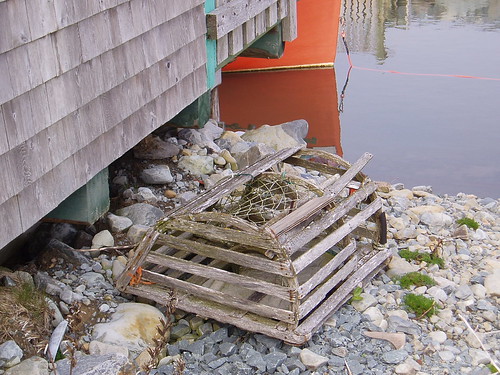The owl way
More fun times out here on the east coast. Still waiting to hear back on a couple of different grants that could make the next year even more interesting than it is already promising to be. I’ve also been working pretty hard on getting the VRE (virtual research environment) together here at the university. More on this soon.
The owl way – a preliminary babbly post
I’ve been in a bunch of discussions recently about literacy. Not the newish version that I use here in the blog, the literacies that include all the things that are the backbone of the lowest common denominator of the skills necessary to perform in our society. Nope. Literacy. Writing. We’ve been talking about what a university writing program should look like. We’ve also been talking about what ‘should’ be happening in high school writing programs.
And it is this ‘implicit should’ that i’m finding interesting. There seems to be a general agreement, in maybe 90% of the people that I talk to, that writing is important and that writing is defined by what you might find on this website. The Purdue owl (online writing lab) is one of the cornerstone of online writing. The BIG YELLOW EYE has popped up on piles of forgotten handouts, sadly missing its sharp yellow jauntiness.
That view, not surprisingly, is upheld by almost every single person who has complete command over the secrets of the ‘owl way’. Now, one could say that this is a conspiracy to maintain the status quo… or one could say that the ‘owl way’ was somehow, through a process of trial and error – a science of the humanities as it were – the ‘best available’ way to pass information between different people, through both time and space. The truth, as in so many of these cases, is probably a little of both.
Lets take a closer look at the owl way, just for a second, as I’ve taught it to writing students here in Canada, in Slovakia and in South Korea. We will all accept, I suppose, that English is an ad hoc language. At least to a certainly degree, the rules and regulations of both the spelling and usage have been developed in response to common usage not the other way around. (like Korean say)
- We use thesis statements, and paragraphs.
- We use, some of us, topic sentences.
- Things are spelled according to the OED or Websters.
- Formal writing conventions are observed (no abbv etc…)
- It is a linear argumentation style, usually presenting one point of view, or at least surveying several points of view on a given subject.
- There is research.
- There is ‘new research’ (usually separated into qualitative and quantitative research)
- You can refer to other people’s published research. This presumes a trust in the publishers to hold to the rules of the ‘owl way’. Publishers who don’t do this lose this ‘trust’.
- These publishers employ ‘experts’ to survey new research and decide whether it’s ‘valid’.
- The goal of the owl way is to contribute to the ongoing discussion on a topic
- Our students, in most cases, are not doing this. They are practicing so that they can both understand the discussion and then, someday, participate in it.
The crux of this, the key point to keep in mind, is that many of those rules are governed by the pros and cons of using paper, as well as the inability of people to establish a common context quickly and easily. If we can’t all agree on how to spell ‘read’ we’re going to have a difficult time understanding what is being referred to by that particular ‘sign’ of ‘read’. What was needed then was a concerted effort to standardize writing according to the technology of the day. Paper. Here’s a preliminary look at where bee vomit leaves us…
- It is very difficult for two people to write on the same piece of paper at the same time.
- It isn’t much easier to do it asynchronously
- Because of the way that printing works, it is difficult to offer two different versions of the same piece of work
- As printing is expensive and distribution complicated, the writing cycle (time from idea to dissemination) is relatively long
- Paper isn’t easy to erase
- Paper needs a nice dry play to live.
- Generally, unless you’re very rich, you need to go to the paper (like a library)
The technology, then, lead us down the inevitable path to what we are seeing in academic writing today. The paper itself, transportation, the printing press… all had a direct impact on the way that we have constructed research writing.
I am starting, in my not so subtle way, to present a case of the technology changing the way we should be participating in the research discussion. In fields like physics, people are already starting to make this transition. It is almost a truism now, on the cutting edge, that by the time you make it through the writing cycle of traditional publishing, your conclusions are probably out of date.
coming in the next post…
The paragraph
The paragraph is intrinsically a one person beast. It is linear and it is single voiced. It is meant to convey on single idea. We have many people now who are trying to write collaboratively, but it is very difficult to bring this down to the paragraph level. Paragraphs tend to work together in an essay to forward the positions of a single thesis.
 1. I was brought up as a lobster fisherman (among other things). Through the different lives I’ve had the pleasure of living there’s been this thread, both the real and the imagined, of the crack of an outboard motor at 5 o’clock in the morning, the feeling of a crab trying to clamp down on my wet, plastic gloved fingers and the fingernail sunrise. I miss the life I’ll never have on the water… probably far more than I would have enjoyed the real life that could have been.
1. I was brought up as a lobster fisherman (among other things). Through the different lives I’ve had the pleasure of living there’s been this thread, both the real and the imagined, of the crack of an outboard motor at 5 o’clock in the morning, the feeling of a crab trying to clamp down on my wet, plastic gloved fingers and the fingernail sunrise. I miss the life I’ll never have on the water… probably far more than I would have enjoyed the real life that could have been.